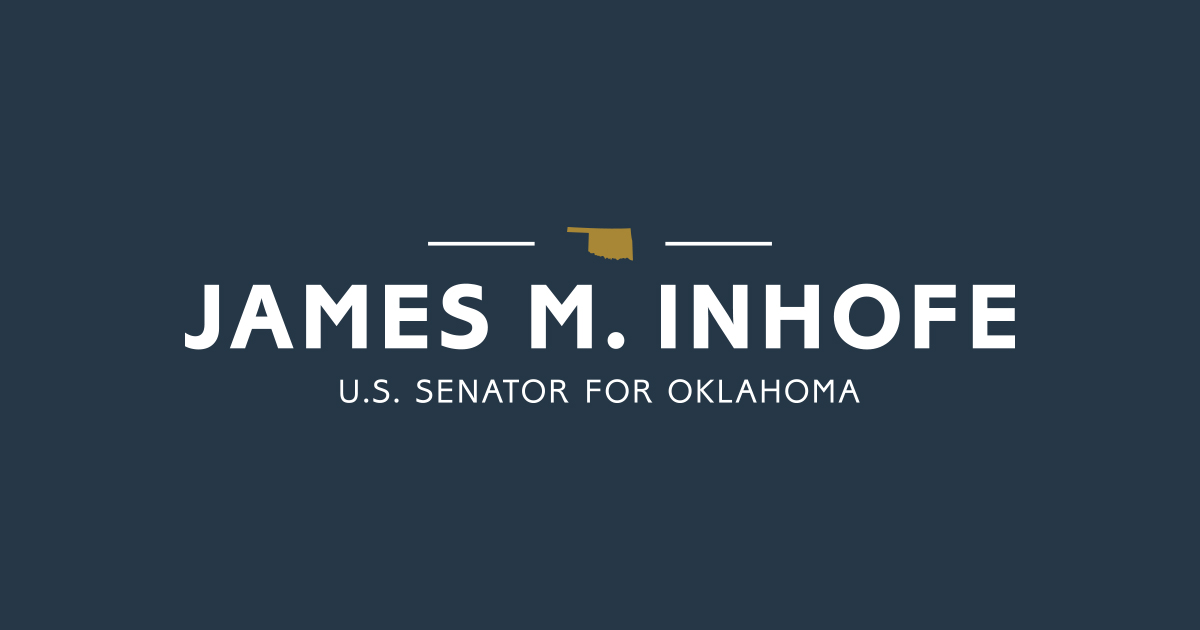Source: United States Senator for Oklahoma James Inhofe
U.S. Sen. Jim Inhofe (R-Okla.), ranking member of the Senate Armed Services Committee, today delivered opening remarks at a committee hearing on security in Afghanistan and south and central Asia where he asked to know what recommendations President Biden’s civilian advisors made throughout the chaotic withdrawal from Afghanistan.
Witnesses include Colin Kahl, Under Secretary of Defense for Policy, and Lieutenant General James Mingus, Director for operations, J3 Joint Staff.
As Prepared for Delivery:
Thank you, Mr. Chairman, and thank you to our witnesses for appearing today.
Welcome back, Secretary Kahl. As the most senior policy advisor at DOD, it’s appropriate that you agreed to testify in open session on these critical issues.
Let’s be clear why we’re here today: As a result of the chaotic withdrawal of U.S. troops in Afghanistan, 13 service men and women were killed, at least hundreds of American citizens were left behind, and many thousands of Afghan partners have been abandoned.
Although some of our questions on this drawdown have been answered, we still have a long way to go until all of our questions are answered, and I want to thank Chairman Reed for working with us on continuing this oversight process.
Now, too often, the current administration tells us that President Biden was forced to withdraw from Afghanistan because of President Trump’s agreement with the Taliban.
This is not true. First, President Biden hasn’t felt bound by President Trump’s policies on anything else—on Iran, or the southwest border, or funding our military.
Second, the Doha Agreement was a conditions-based approach. Under President Trump’s plan, the U.S. agreed to withdraw troops only if the Taliban met seven conditions. These conditions included: preventing al-Qaeda from threatening the U.S. from Afghanistan; and denying residence to those threatening the U.S.
These conditions weren’t met. In fact, as General Milley told us, only one of the seven conditions was met. As we’ve heard in recent hearings, al-Qaeda remains active in Afghanistan, and will likely threaten the U.S. homeland very soon.
That’s why all of President Biden’s military advisers told him to keep at least 2,500 troops to continue fighting terrorists — to protect Americans here in the homeland.
But President Biden withdrew anyway. He did not feel bound by President Trump’s conditions-based approach, and did not follow it. I wish he had. We would be safer today.
Now, Secretary Kahl, you were confirmed on April 27th. So you did not make a recommendation on President Biden’s decision to pull all the troops from Afghanistan by a set date, rather than based on the conditions on the ground.
But you were the most senior policy advisor at DOD for the next four months as this tragedy played out – from May through the end of August.
What I want to know – what the American people want to know, and what our troops who served and sacrificed in Afghanistan absolutely deserve to know – is what did President Biden’s most senior advisors do during those four months?
I want to understand what this national security team did on a day-to-day basis as warning light after warning light began to blink red.
We need to understand, and then fix, what went wrong so we can keep American families safe and protect our interests in the future.
The consequences of the President’s disastrous decision are impossible to ignore: an Afghan interpreter for our Australian allies was executed last week. China is going after rare earth metals there. Girls are being prevented from going to school. That’s just the beginning.
The danger is likely to grow, across the world and in our own backyard. We have heard from our military officials and our intelligence officials how little we really know about the rising threat of terrorism now that Afghanistan is a safe haven for these organizations.
But instead of an honest look at what went wrong, the Biden administration has hunkered down and said this withdrawal was an “extraordinary success.”
And instead of putting together a real counterterrorism plan for the future, all we get is buzzwords.
I look forward to our witnesses’ testimony. Thank you, Chairman Reed.
